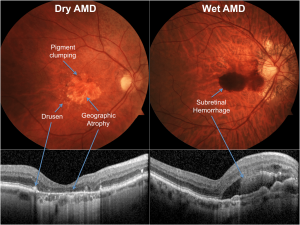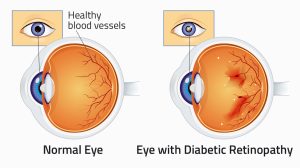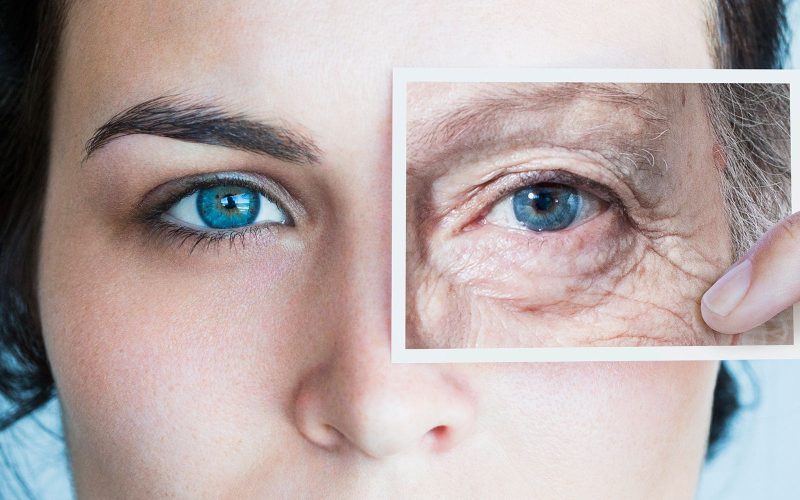Understanding the Impact of Aging on Vision Health
As we age, our bodies undergo numerous changes, and our eyes are no exception. The aging process can bring about various vision concerns that, if left unaddressed, may significantly impact our overall quality of life. In this comprehensive guide, we delve into four serious vision concerns commonly associated with aging and explore effective strategies for managing and mitigating their effects.
1. Age-Related Macular Degeneration (AMD)
Age-related macular degeneration (AMD) is a leading cause of vision loss among older adults. This condition affects the macula, the central portion of the retina responsible for sharp, central vision. As AMD progresses, individuals may experience blurriness or dark spots in their central vision, making activities like reading or driving challenging. Explore More About (Dizziness After Meal)
Understanding AMD Risk Factors
Several factors contribute to the development of AMD, including:
- Age: AMD primarily affects individuals over the age of 50, with the risk increasing with advancing age.
- Genetics: Family history of AMD can significantly elevate an individual’s risk.
- Smoking: Tobacco use is strongly associated with an increased risk of AMD development.
- Nutrition: Poor dietary habits lacking in essential nutrients like vitamin C, vitamin E, zinc, and omega-3 fatty acids may contribute to AMD progression.

2. Cataracts: Clouding of the Eye’s Natural Lens
Cataracts are another common age-related vision concern characterized by the clouding of the eye’s natural lens. This cloudiness can cause vision to become blurry or dim, impacting daily activities and reducing overall visual acuity.
Managing Cataracts Through Surgery
While cataracts may initially be managed with prescription lenses to improve vision clarity, cataract surgery is often necessary to remove the cloudy lens and replace it with an artificial intraocular lens (IOL). Cataract surgery is a safe and effective procedure that can significantly improve visual outcomes and enhance quality of life for individuals affected by cataracts.
3. Glaucoma: The Silent Thief of Sight
Glaucoma refers to a group of eye conditions characterized by damage to the optic nerve, often caused by elevated intraocular pressure (IOP). This damage can lead to irreversible vision loss if left untreated, earning glaucoma its reputation as the “silent thief of sight.”
Early Detection and Treatment of Glaucoma
Regular comprehensive eye exams are crucial for early detection and management of glaucoma. Treatment options may include prescription eye drops, laser therapy, or surgical interventions aimed at lowering IOP and preserving optic nerve function.
4. Diabetic Retinopathy: A Complication of Diabetes
Diabetic retinopathy is a diabetes-related complication that affects the blood vessels of the retina. Over time, high blood sugar levels can damage these blood vessels, leading to vision impairment or even blindness if left untreated.
Importance of Diabetes Management in Preventing Retinopathy
Effective management of diabetes through blood sugar control, healthy lifestyle choices, and regular medical monitoring is essential for reducing the risk of diabetic retinopathy. Additionally, individuals with diabetes should undergo regular eye exams to detect and address any signs of retinal damage early on.

Vision Concerns in Aging
| Vision Concern | Description | Management Strategies |
|---|---|---|
| Age-Related Macular Degeneration (AMD) | Affects the macula, leading to central vision loss and distortion. | – Regular eye exams <br> – Nutrient-rich diet <br> – Avoidance of smoking |
| Cataracts | Clouding of the eye’s natural lens, causing blurry vision. | – Cataract surgery <br> – Prescription lenses |
| Glaucoma | Damage to the optic nerve due to elevated intraocular pressure. | – Comprehensive eye exams <br> – Prescription eye drops <br> – Laser therapy <br> – Surgical interventions |
| Diabetic Retinopathy | Damage to retinal blood vessels due to uncontrolled diabetes, leading to vision impairment or blindness. | – Diabetes management <br> – Blood sugar control <br> – Healthy lifestyle choices <br> – Regular eye exams |
Conclusion
As we age, it becomes increasingly important to prioritize our vision health and proactively address any concerns that may arise. By understanding the common vision concerns associated with aging and adopting preventive measures and proactive management strategies, we can safeguard our eyesight and maintain optimal visual function well into our golden years.










